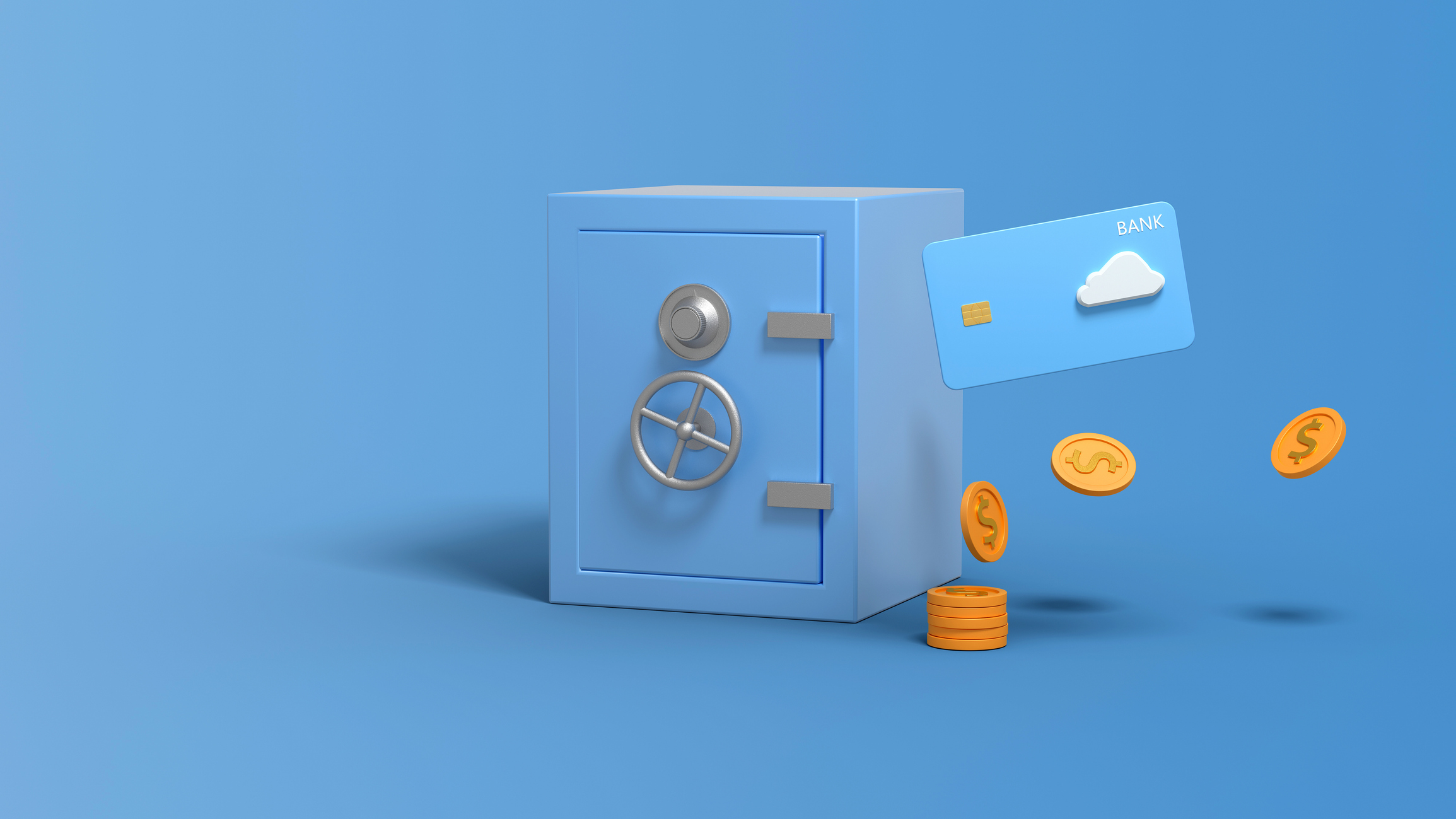How to Freeze Your Credit in Three Steps
Freezing your accounts at the three major credit bureaus is the best way to prevent thieves from opening new credit accounts in your name.

Profit and prosper with the best of Kiplinger's advice on investing, taxes, retirement, personal finance and much more. Delivered daily. Enter your email in the box and click Sign Me Up.
You are now subscribed
Your newsletter sign-up was successful
Want to add more newsletters?

It used to be that you'd freeze your credit if you'd suffered identity theft or some other compromise of your personal information. But as data breaches have piled up, a pre-emptive credit freeze has become a popular way to protect your credit, even if a thief hasn't yet made fraudulent use of your info.
Being proactive is only one way to protect your identity. There are many other ways to keep your credit secret, which we'll cover in the article.
We'll also explain how a credit freeze works and how to set one up to protect your most important data from digital thieves.
From just $107.88 $24.99 for Kiplinger Personal Finance
Become a smarter, better informed investor. Subscribe from just $107.88 $24.99, plus get up to 4 Special Issues

Sign up for Kiplinger’s Free Newsletters
Profit and prosper with the best of expert advice on investing, taxes, retirement, personal finance and more - straight to your e-mail.
Profit and prosper with the best of expert advice - straight to your e-mail.
What does a credit freeze do?
When you put a credit freeze (sometimes called a security freeze) in place, new creditors can't review your credit reports to judge whether you're eligible for a credit card or loan — and in turn, lenders are unlikely to grant credit to fraudsters posing as you. When you need to shop for credit for yourself, you can temporarily lift the freeze.
How much does a credit freeze cost?
Do I have to pay to freeze my credit? Nope. Placing and lifting a freeze is free at each of the major credit agencies, thanks to federal law.
How do I freeze my credit?
To set up a credit freeze, take these three steps.
1. Gather your information. In the past, all three of the credit agencies had consumers use a PIN to confirm their identities when they wanted to temporarily lift or permanently remove a freeze. But TransUnion, Equifax and Experian no longer require a PIN.
Instead, you can set up a password-protected online account or provide identity-verification information by phone or mail. But if you go online, you can manage your freeze with a password-protected account instead.
2. Contact each credit agency. The web pages or phone numbers below are the quickest avenues to imposing a freeze. To submit your request by mail, use these addresses.
Freeze your credit with Equifax
Equifax Information Services LLC,
P.O. Box 105788,
Atlanta, GA 30348
(Fill out and submit this form to request a freeze by mail.)
888-298-0045
Freeze your credit with Experian
Experian Security Freeze,
P.O. Box 9554
Allen, TX 75013
888-397-3742
Freeze your credit with TransUnion
TransUnion
P.O. Box 160
Woodlyn, PA 19094
888-909-8872
3. Save your passwords. We're all guilty of using the same passwords for everything. However, that also means if hackers can crack your password, it won't take them long to access all of your information.
For this reason, having a password manager is essential. Some of the top options include Dashlane and NordPass. They can create unique passwords for each of your online accounts to keep you safe and store them securely for when you need to use them.
Norton protects your data by monitoring hundreds of millions of data points per minute.
Other steps to protect your credit

- Monitor your credit reports regularly. While you can receive a free credit report from each bureau annually, a service like MyFico helps you stay on top of any credit changes, like new accounts opening or inquiries. And if you don't recognize any changes, you can place freezes on your credit history right away before more damage happens.
- Store documents securely. If you can, sign up for electronic statements with your lenders. They'll arrive in your email, reducing the likelihood of anyone intercepting information through the mail. You can also use a service like Quicken's LifeHub for cloud storage. That way, you can shred paper files and gain access to them on the go, anytime you need them.
- Use a password manager. A password manager creates difficult passwords to crack and stores them securely for you. Services like 1Password protect every aspect of your digital life, tying in all your online accounts with all of your devices in one hub to secure all data points.
- Secure your internet: If you use home Wi-Fi, ensure your phone, computer and router have updated software. This can minimize security vulnerabilities thieves use to hack into Wi-Fi.
- Use credit repair services to fix errors. If you notice errors in your credit report, you might be wondering how to fix them. Credit Saint specializes in helping customers improve their credit scores by working on their behalf to remove incorrect information on their credit reports.
Being proactive pays off
Data breaches happen all the time. As such, knowing all the credit monitoring tools at your disposal can help you keep up to date with any changes. In turn, you can take action promptly if someone tries to open an account in your name.
Just remember to freeze your credit with each credit agency. That way, if your information is compromised, you can stop them from harming your credit. And if you don't plan to use your credit anytime soon, freezing it doesn't do any harm, yet it protects your information from being used.
Related Content
- Things to Do Immediately If You're Involved in a Data Breach
- How to Fix Errors in Your Credit Report
- How to Protect Your Home From Deed Theft
Profit and prosper with the best of Kiplinger's advice on investing, taxes, retirement, personal finance and much more. Delivered daily. Enter your email in the box and click Sign Me Up.

Lisa has been the editor of Kiplinger Personal Finance since June 2023. Previously, she spent more than a decade reporting and writing for the magazine on a variety of topics, including credit, banking and retirement. She has shared her expertise as a guest on the Today Show, CNN, Fox, NPR, Cheddar and many other media outlets around the nation. Lisa graduated from Ball State University and received the school’s “Graduate of the Last Decade” award in 2014. A military spouse, she has moved around the U.S. and currently lives in the Philadelphia area with her husband and two sons.
- Sean JacksonPersonal finance eCommerce writer
- Donna LeValleyRetirement Writer
-
 4 High-End Experiences Worth the Splurge After 50
4 High-End Experiences Worth the Splurge After 50These curated date ideas provide the perfect backdrop for couples ready to enjoy the very best that the world has to offer.
-
 Health Care Stocks Have Sagged. Can You Bet on a Recovery?
Health Care Stocks Have Sagged. Can You Bet on a Recovery?The flagging health care sector has perked up a bit lately. Is it time to invest?
-
 Costco's Auto Program: Can Membership Pricing Really Save You Money on a Car?
Costco's Auto Program: Can Membership Pricing Really Save You Money on a Car?Costco's Auto Program can simplify the car-buying process with prearranged pricing and member perks. Here's what to know before you use it.
-
 What Is an Assumable Mortgage and Could It Save You Thousands?
What Is an Assumable Mortgage and Could It Save You Thousands?With mortgage rates still elevated, taking over a seller’s existing home loan could lower monthly payments — if the numbers work.
-
 Have You Fallen Into the High-Earning Trap? This Is How to Escape
Have You Fallen Into the High-Earning Trap? This Is How to EscapeHigh income is a gift, but it can pull you into higher spending, undisciplined investing and overreliance on future earnings. These actionable steps will help you escape the trap.
-
 I'm a Financial Adviser: These 3 Questions Can Help You Navigate a Noisy Year With Financial Clarity
I'm a Financial Adviser: These 3 Questions Can Help You Navigate a Noisy Year With Financial ClarityThe key is to resist focusing only on the markets. Instead, when making financial decisions, think about your values and what matters the most to you.
-
 Where Olympians Store Their Medals is a Great Lesson For Your Valuables and Cash
Where Olympians Store Their Medals is a Great Lesson For Your Valuables and CashWhat you can learn about protecting your cash and values from where Olympians store their medals.
-
 An Executive's 'Idiotic' Idea: Skip Safety Class and Commit a Federal Crime
An Executive's 'Idiotic' Idea: Skip Safety Class and Commit a Federal CrimeSeveral medical professionals reached out to say that one of their bosses suggested committing a crime to fulfill OSHA requirements. What's an employee to do?
-
 How You Can Use the Financial Resource Built Into Your Home to Help With Your Long-Term Goals
How You Can Use the Financial Resource Built Into Your Home to Help With Your Long-Term GoalsHomeowners are increasingly using their home equity, through products like HELOCs and home equity loans, as a financial resource for managing debt, funding renovations and more.
-
 How to Find Free Money for Graduate School as Federal Loans Tighten in 2026
How to Find Free Money for Graduate School as Federal Loans Tighten in 2026Starting July 1, federal borrowing will be capped for new graduate students, making scholarships and other forms of "free money" vital. Here's what to know.
-
 My First $1 Million: Retired Senior Policy Analyst, 64, Washington, D.C.
My First $1 Million: Retired Senior Policy Analyst, 64, Washington, D.C.Ever wonder how someone who's made a million dollars or more did it? Kiplinger's My First $1 Million series uncovers the answers.
